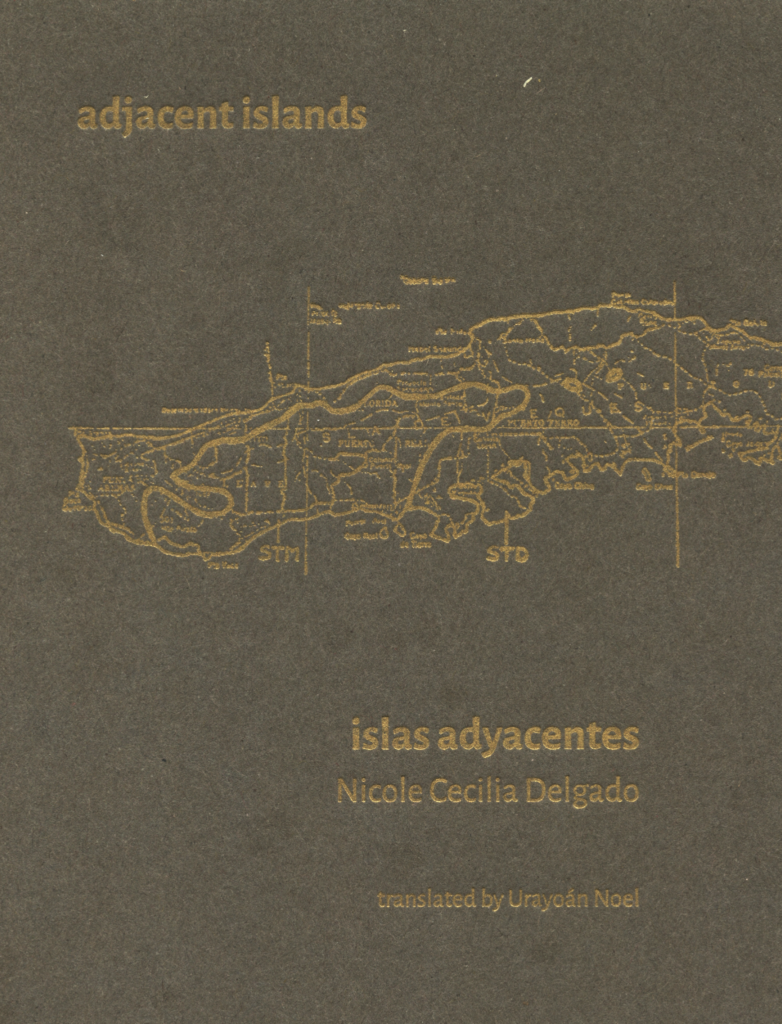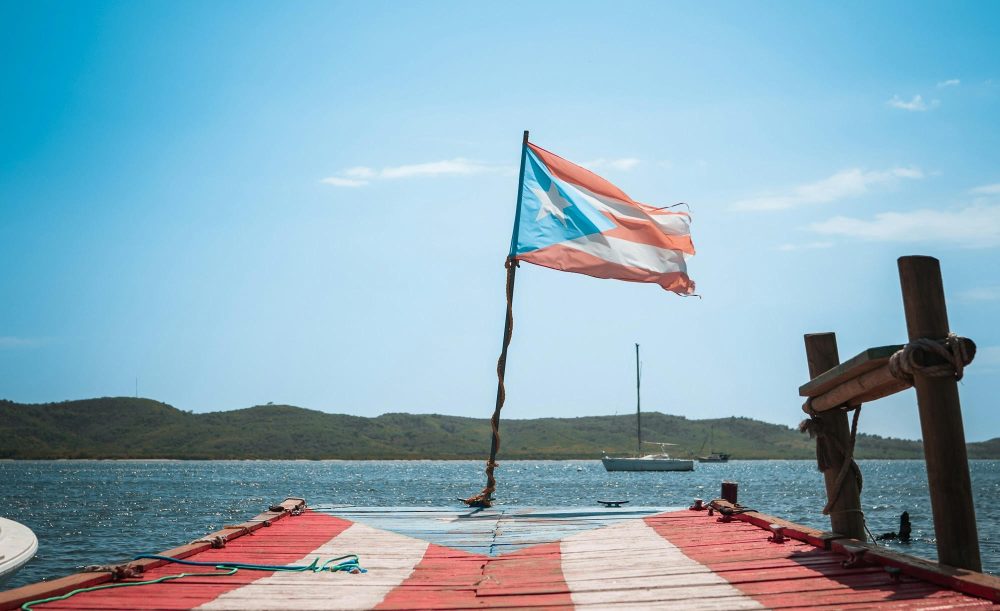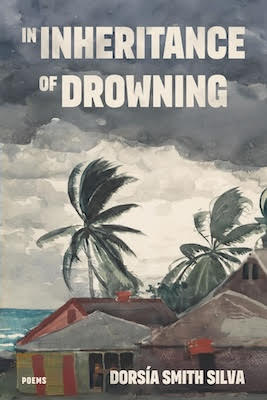For Puerto Rican protest poets, one of the most important ways to appreciate and show love for Puerto Rico has been to write poems that underscore pride in their Puerto Rican cultural identity and heritage and denounce Puerto Rico’s status as a U.S. colony. As they explore Puerto Rican empowerment and expose how Puerto Rico has suffered multiple crises because of its relationship with the U.S., Puerto Rican poets utilize protest poetry as a means of resistance. By building on an agency of language, poetic forms, Puerto Rican history, Puerto Rican protest poets reconfigure the Puerto Rico-U.S. relationship on their own terms. For them, “poetry,” as Lucille Clifton wrote, “is a matter of life, not just a matter of language.”
In my poetry debut collection, In Inheritance of Drowning, I described how I witnessed Puerto Rico’s colonial status during the aftermath of Hurricane María in 2017. Puerto Rico had the longest blackout in U.S. history—326 days, and many Puerto Ricans had a lengthy wait to receive basic supplies of water and food. These political poems are a part of a much larger conversation that the collection layers, especially as the poems call for a social transformation. I see my position as a writer of protest poetry to also testify to how Puerto Rico has been thrust into economic and linguistic precarity because of oppressive U.S. laws. Thus, I wrote what was political, personal, and absolutely necessary—a position that more and more protest poets likely find themselves in when there are so many communities being marginalized.
Positing my work into the characteristics of protest poetry meant that my poems were more than just words on a page. They were challenges to frameworks that stifled social justice. And they were doing the work of being advocates of the Spanish language and confronting the assumptions that accessible literature means English only. The poetry collections mentioned here are doing important work. Embodying rich and vivid language, these books offer nuanced representations that readers will relate to, especially during this time where poets are urgently demanding change.
Before Island is Volcano by Roque Raquel Salas Rivera
Roque Raquel Salas Rivera has several poetry collections that feature a fearless writer. In this sixth collection, Salas Rivera not only calls for an independent Puerto Rico that is away from being under the thumb of the United States, but also a Puerto Rico that marvels in its freedom. This is a Puerto Rico that “won’t be sorry” without the United States, as the poet ironically asks, “won’t you get restless / with all that freedom?” I found myself full of delight with the imagery and line breaks: “we are braver than stalking anguish; / we are more beautiful than universal monarchies.” The candor and lyrical dexterity also made me read with rapt attention. By the end of the book, I was eager for more of these remarkable poems that address the complicated colonial history of Puerto Rico. The collection is available for readers in English and Spanish versions—both of which were written by Salas Rivera.
Transversal by Urayoán Noel
Urayóan Noel is a poet that has approached the tense and unbalanced United States-Puerto Rico relationship throughout his poetry collections. This seventh collection is a beautiful gem, especially as it showcases how poetics and politics go hand-in-hand. When he insists upon poems that bob between Spanish and English, Noel powerfully pushes back against the colonizer’s language and sovereignty and weak “attempts” to “help” Puerto Ricans after Hurricane María: “Throw stuff at the empire’s walls and see what sticks / Se acabaron los memes de conquista, / or tear down the walls you were standing on? The politics reveal the linguistic imaginary as a part of the Puerto Rican intersectional identity and landscape. Here, as Noel reveals, Puerto Ricans are free to use Spanish and English as they please. It is an accessible and intimate experience that readers will turn to time and time again.
To Love an Island by Ana Portnoy Brimmer
Ana Portnoy Brimmer’s memorable debut, To Love an Island, left me with impressive sensory moments. This is the kind of collection that lingers in the mind, and makes you wonder why you had not read it sooner. As it showcases the power of Puerto Rican resistance after Puerto Rico endured Hurricane María and a series of earthquakes, the collection points the finger at the U.S. for crushing Puerto Rico with imperialist debt and capitalism and refusing to provide economic assistance: “Cancel the debt, that’s not our debt, won’t pay the debt, illegal debt, /colonial debt, fuck the debt, no longer afraid of your threat—prophet. / Won’t cancel the debt, this is your debt, no receipts, pay the debt, this legal / debt, forever mine debtors, forever your debt, fear my threat—profit.” Portnoy Brimmer also captivatingly centers a decolonial future—one where Puerto Rico is still vulnerable, but free from the United States and overcomes historical trauma and grief: “Puerto Rico is ours, even if it trembles again and collapses on us entirely.”

Adjacent Islands by Nicole Cecilia Delgado; Translated by Urayoán Noel
The adjacent islands of Puerto Rico, Mona and Vieques, are the focus in Nicole Cecilia Delgado’s third collection. Just like the merging of islands, the collection merges Delgado’s two previously published collections to extend this unforgettable poetic travelogue. The poems are splendid in their descriptions of nature, water, and animals against a backdrop of the painful history of U.S. militarism which has affected Puerto Rico: “Pineapples and papayas grow / To all your fences we say No / U.S. Navy’s got to go” and “No Trespassing. Authorized personnel only. Danger. Explosives.” As she poignantly recounts the U.S. military’s harmful occupation on these islands, Delgado courageously wrestles with Mona and Vieques reclaiming their natural beauty away from colonization. There is a strength and beauty in these poems that I feel privileged to have accessed.

Excelsior: New and Collected Poems by Bonafide Rojas
This twenty-year stunning collection by Bonafide Rojas is brimming with invention, honesty, and daring inspection. Excelsior: New and Collected Poems shines in its narratives and bridges between Puerto Ricans and other BIPOC communities. In “One Man’s Fight for Love,” “the cancer babies of Vieques” are sick and dying because of the U.S.’s military bombing, and their suffering is linked to the Black and Brown males that have died from police brutality: “the last breath of Trayvon, Floyd & Anthony Baez.” Rojas builds upon this tension to ultimately say what we have known all along: “Poetry is revolutionary / just like love.” The love here is Puerto Rican pride, which moves across Puerto Rico to New York and beyond, and circles again.
Deuda Natal by Mara Pastor; Translated by María José Giménez and Anna Rosenwong
Winning the Ambroggio Prize of the Academy of American Poets, Deuda Natal by Mara Pastor, hypnotizes readers with each poem. This is a collection that not only elegantly mirrors how Puerto Rico has suffered disaster and environmental capitalism, but also compassionately recognizes everyday Puerto Rican life: “the man that sells crabs” and “a beach where the sun goes down.” The resistance voice heats up in poems like “After the storm” and “Domestic Tourism” that contain insight to Puerto Rico’s economic exploitation by the United States. By opening readers to this world, I found the collection to be the perfect match between politics and language with deft skill and precision.
Papi Pichón by Dimitri Reyes
Dimitri Reyes maneuvers Puerto Rican resistance in their daily lives, historical acts, and language in his profound debut Papi Pichón. The palpable poems shape Puerto Ricans and their participation in the 1974 Puerto Rican riots in Newark, and NJ and the circumstances of Hurricane María. What I was enthusiastically drawn to was the essential core of Papi Pichón–the reclamation of what it means to be Puerto Rican, including the traditional guayabera shirt in “Papi Pichón Shops for Guayaberas in a Department Store.” Here, Reyes tangibly transforms the speaker to Puerto Rico: “How I wish clothing rack guayaberas / would turn any Suncup into a piña colada, / shake my Tropicana carton into a mojito.” The poems made a lasting impression, especially as they gracefully propel readers to affirm Puerto Rican culture and identity.
Tertulia by Vincent Toro
“In 1950, American jet fighters struck the towns of Jayuya / and Utuado. It was one of two occasions in which the U.S. / bombed its own citizens,” Vincent Toro writes in “On Bombing” from his second collection Tertulia. He deliberately strikes a fine balance between history and protest to give readers keen insight about the fraught relationship between Puerto Rico and the U.S.: “Some Puerto Ricans had made it / clear that they were not thrilled about being occupied by / organizing a rebellion to expel the invaders.” The collection sings and pulses, so that readers are left with a fluidity guiding them through the pages. Along the way, the “Areyto” poems link to the Taíno Indians of Puerto Rico as powerful moments where Puerto Ricans can remember their past as a way to go forward; “Pa’lante!”
Take a break from the news
We publish your favorite authors—even the ones you haven’t read yet. Get new fiction, essays, and poetry delivered to your inbox.
YOUR INBOX IS LIT
Enjoy strange, diverting work from The Commuter on Mondays, absorbing fiction from Recommended Reading on Wednesdays, and a roundup of our best work of the week on Fridays. Personalize your subscription preferences here.

